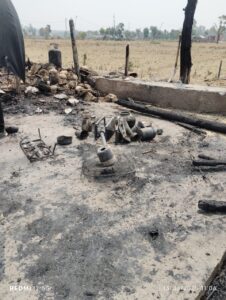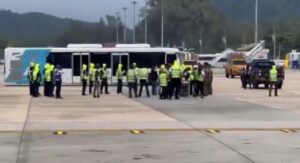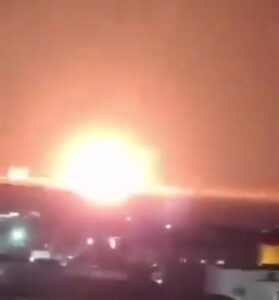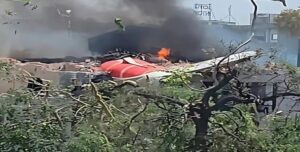Israel launches operation ‘Rising Lion’ against Iran: Targetted Iran’s Nuclear & Military Fascilities
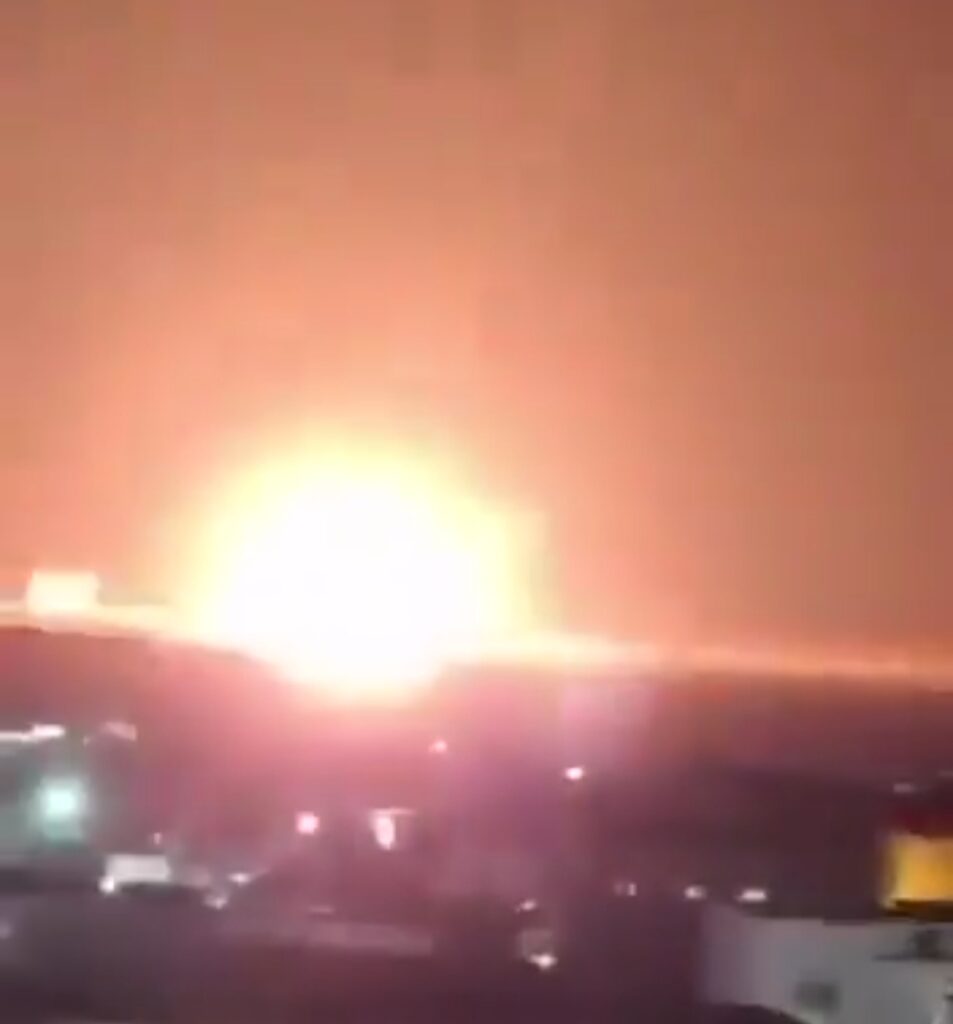
Israel launches operation Rising Lionthat is a large-scale military operation against Iran on June 13, 2025, targeting Iranian nuclear and military facilities. Below is a detailed summary based on available information:
Overview
- Codename: Am KeLavi (Hebrew: עם כלביא, lit. ‘Nation like a Lion’ or Operation Rising Lion).
- Date: Initiated in the early morning hours of June 13, 2025.
- Objective: To neutralize Iran’s nuclear program, ballistic missile capabilities, and military infrastructure, which Israel considers an existential threat.
- Key Targets:
- Nuclear Facilities: Strikes hit Iran’s main uranium enrichment facility at Natanz, as well as nuclear sites at Khondab and Khorramabad.
- Military Sites: Military bases and command centers across Tehran, Khorramabad, Kermanshah, Karaj, and Hamedan were targeted.
- Personnel: Key figures, including Iran’s Revolutionary Guard commander Hossein Salami, nuclear scientists Fereydoun Abbasi-Davani and Mohammad Mehdi Tehranchi, and possibly Iranian Armed Forces Chief of Staff Major General Mohammad Bagheri, were killed.
Context and Rationale
- Israeli Perspective: Israeli Prime Minister Benjamin Netanyahu stated that the operation was a preemptive strike to counter Iran’s nuclear ambitions, which he claimed could produce a nuclear weapon within months. He cited Iran’s production of enough highly enriched uranium for up to nine atomic bombs and recent steps toward weaponization as a “clear and present danger” to Israel’s survival.
- Iranian Threat: Israel accused Iran of secretly developing nuclear weapons, despite conflicting U.S. intelligence assessments. Iran’s ballistic missile arsenal and support for regional proxies like Hezbollah and Hamas were also cited as threats.
- Regional Dynamics: The operation followed the collapse of Iran’s key allies (e.g., Syria’s Assad regime, Hezbollah, and Hamas) since 2023, weakening Iran’s regional influence. It also came after Iran’s missile attacks on Israel in 2024 (Operations True Promise 1 and 2).
Execution
- Strikes: The operation involved a major aerial assault, with explosions reported across Tehran Tabrez and other cities. Eyewitnesses described massive flames and repeated blasts near military bases and residential areas housing senior commanders.
- Impact: The strikes caught Iran off guard, with significant damage to nuclear infrastructure and military capabilities. Iranian state media confirmed explosions and showed images of smoke and fire. Civilian air traffic over Tehran was halted, and fighter jets scrambled to intercept Israeli warplanes.
- Duration: Netanyahu stated the operation would continue “for as many days as necessary” to eliminate the threat.
International Response
- United States: The U.S. distanced itself from the operation, with officials confirming no American aircraft were involved. The U.S. withdrew non-essential embassy staff from the Middle East and warned Iran against targeting U.S. interests. President Trump noted that the strikes could impact ongoing diplomatic efforts to curb Iran’s nuclear activities.
- International Atomic Energy Agency (IAEA): The IAEA censured Iran on June 12, 2025, for breaching nuclear non-proliferation commitments, providing a backdrop to the strikes.
- Regional Reactions: Iraq closed its airspace, and the Houthi movement in Yemen threatened to attack U.S. interests if a strike on Iran occurred.
Israeli Domestic Measures
- Emergency Actions: Israel declared a state of special emergency, shut down airspace, closed schools and workplaces (except essential ones), and banned mass gatherings. Air-raid sirens sounded across the country, including in Jerusalem, in anticipation of Iranian retaliation.
- Military Preparedness: IDF Chief of Staff Eyal Zamir emphasized the operation’s historical significance, describing it as a “fateful campaign” to secure Israel’s future. The IDF mobilized tens of thousands of soldiers and prepared for potential escalations along all borders.
Controversies and Claims
- Casualties: Posts on X claimed that senior Iranian politicians and the residence of Iranian President Masoud Pezeshkian were targeted, but these claims lack confirmation from reliable sources and should be treated as inconclusive.
- Nuclear Threat: Israel’s claim that Iran could produce a nuclear weapon in months contradicts U.S. intelligence assessments, which found no evidence of active weaponization.
- Diplomatic Fallout: The strikes occurred amidst U.S.-led diplomatic efforts to negotiate a new nuclear agreement with Iran, potentially complicating those talks.
Broader Implications
- Escalation Risks: The operation marks a significant escalation in the Israel-Iran shadow conflict, with warnings of potential Iranian retaliation, possibly involving ballistic missiles.
- Regional Stability: By targeting Iran’s nuclear and military infrastructure, Israel aims to weaken Tehran’s influence, but the strikes could destabilize the region further, especially given Iran’s weakened proxy network.
- Historical Context: Netanyahu framed the operation as a response to historical lessons, referencing the Holocaust and biblical calls to act against existential threats.


